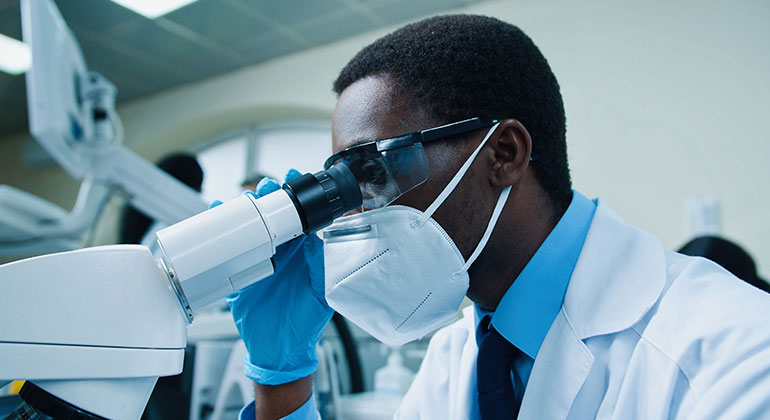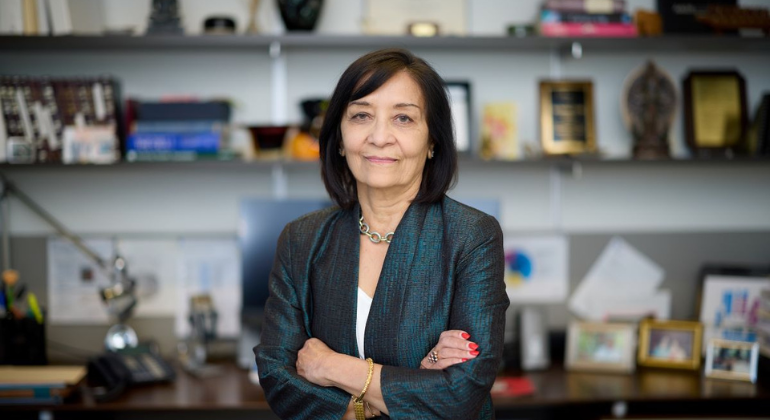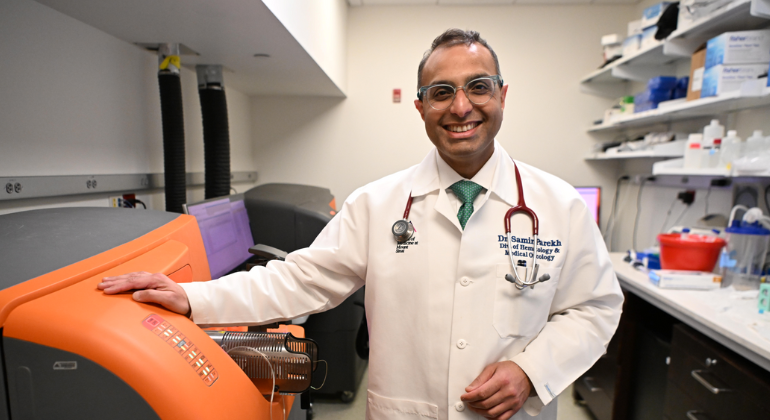Researchers Identify Potential Formula for Blood Cancer Vaccine
Researchers at the Icahn School of Medicine at Mount Sinai have discovered a way to move precision immunotherapy forward by using genomics to inform immunotherapy for multiple myeloma, a blood cancer, according to a study published in Clinical Cancer Research, a journal of the American Association for Cancer Research, in December.
This is the first study to experimentally determine which byproducts from the mutation of tumors (known as neoantigens) have the ability to provoke the immune system into recognizing and killing cancer cells in multiple myeloma patients. The results provide the foundation for using neoantigen-targeting strategies such as cancer vaccines in future trials for multiple myeloma patients. Multiple myeloma is a malignancy of plasma cells affecting 30,000 people a year.
Next-generation sequencing data was analyzed to describe the landscape of neoantigens in 184 patients, and researchers identified neoantigen-specific immune cells triggered by immunotherapy. Additionally, they showed an increase in neoantigens in patients who had relapsed myeloma versus new patients, which may indicate potential for greater immune responses to immunotherapy in these patients. The study also identifies common neoantigens between patients, which could lead to new vaccine therapies.
“Tumor neoantigens represent excellent targets for immunotherapy, due to their specific expression in cancer tissue,” said Samir Parekh, MD, Associate Professor of Oncological Sciences and Medicine (Hematology and Medical Oncology) at the Icahn School of Medicine. “Until now, there has been no direct evidence that DNA mutations induce neoantigen-specific T-cell responses following immunotherapy in multiple myeloma.”
Stemming from this research, co-author Nina Bhardwaj, MD, PhD, Professor of Medicine (Hematology and Medical Oncology) at the Icahn School of Medicine, and colleagues are pursuing a clinical trial investigating the safety and responsiveness of a personalized neoantigen vaccine for the treatment of cancers including multiple myeloma.
This study was supported by the NIH (R21 CA223953) and the Multiple Myeloma Research Foundation.
About the Mount Sinai Health System
Mount Sinai Health System is one of the largest academic medical systems in the New York metro area, with 48,000 employees working across seven hospitals, more than 400 outpatient practices, more than 600 research and clinical labs, a school of nursing, and a leading school of medicine and graduate education. Mount Sinai advances health for all people, everywhere, by taking on the most complex health care challenges of our time—discovering and applying new scientific learning and knowledge; developing safer, more effective treatments; educating the next generation of medical leaders and innovators; and supporting local communities by delivering high-quality care to all who need it.
Through the integration of its hospitals, labs, and schools, Mount Sinai offers comprehensive health care solutions from birth through geriatrics, leveraging innovative approaches such as artificial intelligence and informatics while keeping patients’ medical and emotional needs at the center of all treatment. The Health System includes approximately 9,000 primary and specialty care physicians and 10 free-standing joint-venture centers throughout the five boroughs of New York City, Westchester, Long Island, and Florida. Hospitals within the System are consistently ranked by Newsweek’s® “The World’s Best Smart Hospitals, Best in State Hospitals, World Best Hospitals and Best Specialty Hospitals” and by U.S. News & World Report's® “Best Hospitals” and “Best Children’s Hospitals.” The Mount Sinai Hospital is on the U.S. News & World Report® “Best Hospitals” Honor Roll for 2025-2026.
For more information, visit https://www.mountsinai.org or find Mount Sinai on Facebook, Instagram, LinkedIn, X, and YouTube.

Mount Sinai Researchers Engineer Rare Immune Cells to Create Powerful New Cancer Vaccine
Jul 21, 2025 View All Press Releases
Mount Sinai Study Advances Understanding of Personalized Vaccines for Bladder Cancer
May 12, 2025 View All Press Releases
Researchers Find Treatment Options for Patients Whose Blood Cancer Relapses After CAR-T
Nov 04, 2022 View All Press Releases



